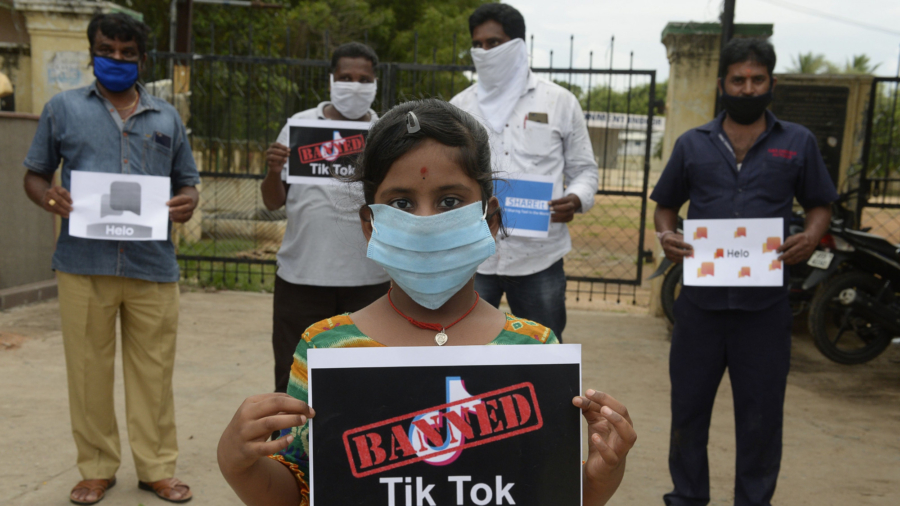The Indian government has banned 47 additional Chinese apps, following a ban of 59 mostly Chinese apps last month, according to several local media.
Press Trust of India (PTI), the largest news agency in India, reported on July 27 that the Indian government has drawn up a list banning 47 more Chinese apps, most of which are clones and variants of the apps banned at the end of June. Citing an unnamed source, PTI said the ban for all Indian users went into effect last Friday.
Another local media India Today, citing its own unnamed sources, also reported on the ban of the 47 apps and added that the list will be released soon.
Several local media outlets named some of the newly-banned apps, such as TikTok Lite, a lite version of the popular video-sharing app TikTok, as well as Helo Lite, SHAREit Lite, Bigo Live Lite, and Cam Scanner Advance.
TikTok, Helo, SHAREit, Bigo, and Came Scanner were among the 59 Chinese apps initially banned. According to a press release by India’s Ministry of Electronics and Information Technology, these apps “engaged in activities which are prejudicial to sovereignty and integrity of India, defense of India, security of state, and public order.”
The June ban, which also included popular Chinese messaging app WeChat and social media platform Weibo, was issued amid high tensions between China and India, after a deadly clash at a disputed border region on June 15 that left 20 Indian soldiers dead.
On Saturday, India Today reported that disengagement at some locations in the eastern Ladakh region, where the clash took place, had been complete.
In a government press statement on July 4, the Indian government explained that one of the reasons for banning these 59 apps was because “some apps have been stealing and surreptitiously transmitting users’ data to servers based outside India.”
Without naming China, it warned that companies may hand over users’ data to foreign governments, thus hurting India’s national interests.
On July 10, the Indian government published on its website the names of alternative Indian apps to the 59 banned apps, saying the ban was an opportunity for India to become self-reliant on its own tech capabilities.
Lawmakers, officials, and experts in the United States have also expressed concerns about Chinese apps’ collection of user data, particularly TikTok, which was launched by the Beijing-based tech firm ByteDance in 2016.
A U.S. Senate bill banning TikTok on government-issued devices passed unanimously through the Senate Committee on Homeland Security and Government Affairs on July 22, and will next be placed before the Senate floor for a vote. Two days earlier, lawmakers in the House voted 336-71 to pass a similar bill. If it passes the full Senate, any differences between the two bills will then be negotiated, followed by a full Congressional vote.
Also on Monday, India Today and The Economic Times reported that the Indian government has also prepared another list of over 250 Chinese apps that it will examine for violations of user data and national security.
The Economic Times reported that it had reviewed the list, which includes AliExpress developed by Chinese tech giant Alibaba and PubG by Chinese tech giant Tencent.
From The Epoch Times


